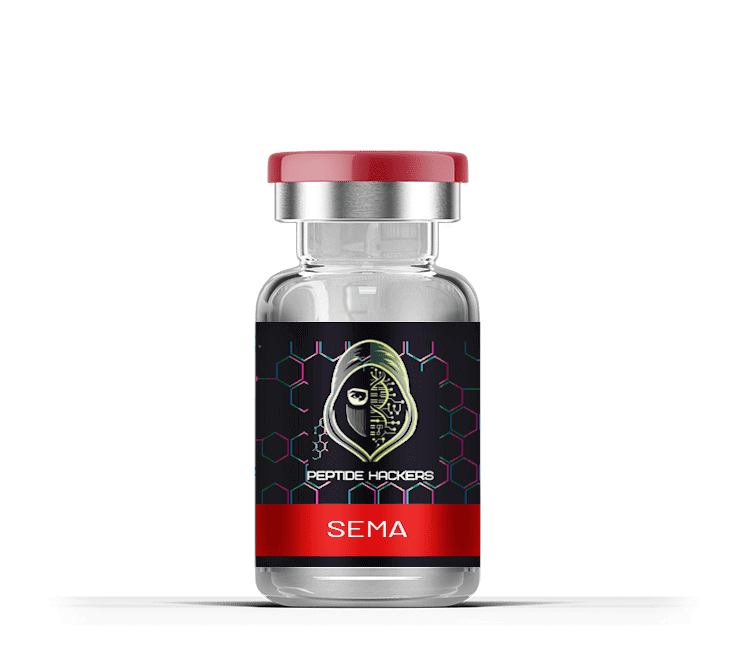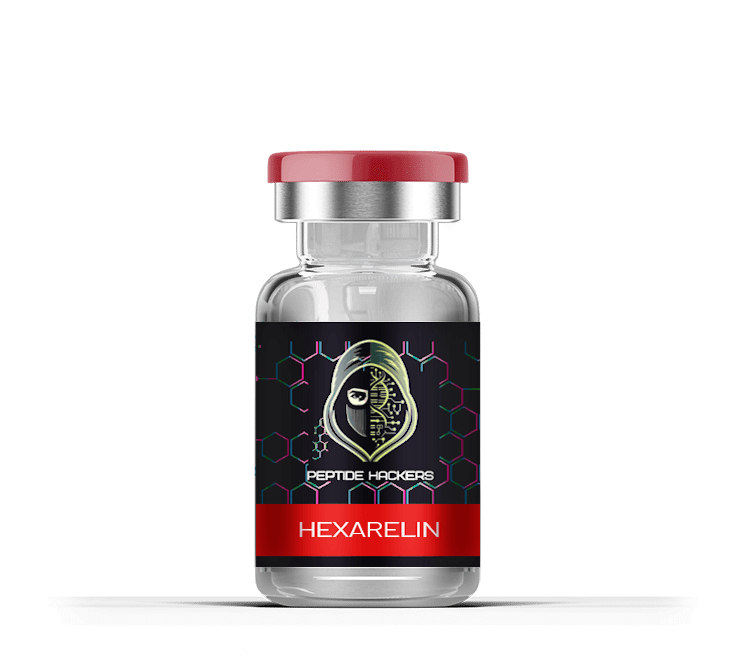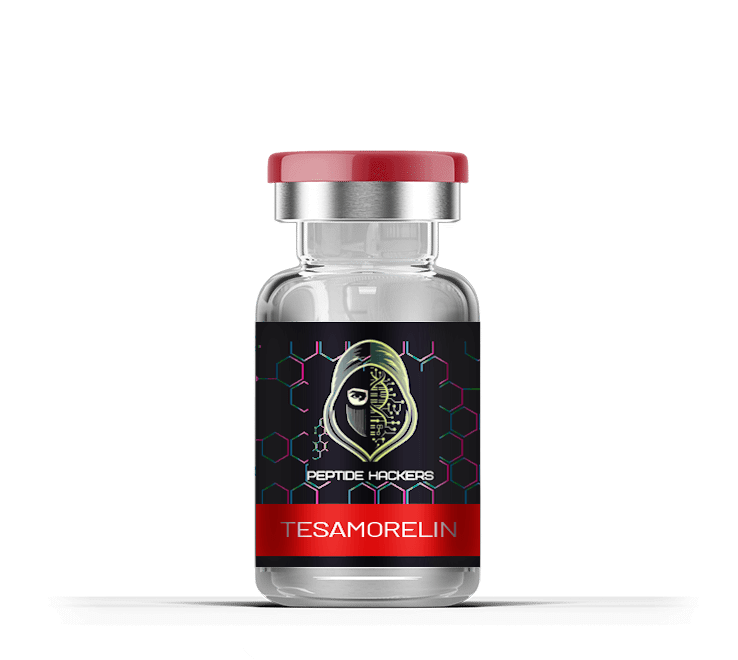Pinealon 10mg
Shipping: We offer reliable shipping options both domestically and internationally. All orders are processed within 1-2 business days. Shipping times vary depending on your location, and you will receive a tracking number once your order has shipped. Please note that international customers are responsible for ensuring that peptide products comply with their country’s import regulations.
Returns: Due to the specialized nature of our products, we do not accept returns or exchanges. If you receive a damaged or incorrect item, please contact our customer support team within 7 days of delivery. We will work to resolve the issue as quickly as possible, either by sending a replacement or providing a refund if applicable. For additional questions about shipping or returns, please reach out to our support team.
Pinealon Peptide Research Review on Cognitive Function Experiments and Laboratory Applications
CRITICAL RESEARCH DISCLAIMER:
FOR LABORATORY RESEARCH USE ONLY. NOT FOR HUMAN CONSUMPTION. NOT FOR VETERINARY USE.
This article is for informational and educational purposes only, discussing published research studies on pinealon peptide. Pinealon is an investigational research compound that is NOT intended for human consumption or medical application. The information supplied is based on laboratory research and controlled experimental testing in research settings only.
Introduction to Pinealon Peptide Research
Pinealon peptide is a synthetic tripeptide which has attracted interest from laboratory researchers for its possible action on brain health markers and cognitive function indicators in controlled studies. Originally developed in Russia as a peptide bioregulator for laboratory testing, this is a tripeptide consisting of three amino acids: L-glutamic acid, L-aspartic acid, and L-arginine (Glu-Asp-Arg). It is designated for scientific research use only and not for human consumption outside of approved clinical trials.
Research Note: This is a research compound for laboratory investigation only.
In vitro, this compound consists of amino acids and has been demonstrated to alter gene expression and cellular processes in experimental work. The pinealon peptide could penetrate the blood brain barrier in animal models, and interact with brain cells and neural tissue in vitro. This synthetic peptide is a representative member of short fluorescence labeled peptides previously described as able to translocate through nuclear membranes and interact with the cell genome in vitro, indicating potential for cell cycle modulation in laboratory settings.
Laboratory studies on pinealon peptide have shown it to promote cognitive health markers and protect neurons from oxidative stress in cell-culture studies. Under experimental conditions, pinealon enhances cell viability and lowers reactive oxygen species accumulation in cultures of brain cortex cells and cerebellar granule cells. Animal studies indicate that animals in experimental groups have increased brain health markers compared with controls. Research in clinical and experimental medicine literature indicates that pinealon could help prevent free radical levels and cell death in different models of neurological conditions such as traumatic brain injury simulations or models of organic brain syndrome.
For laboratory research purposes only. Not for human use.
Laboratory studies with pinealon peptide have shown influence on the cognitive activity markers of offspring and neural differentiation in animal research models. Studies of pregnant rats exposed to neurotoxins in controlled experiments have shown that pinealon administration during pregnancy can have a protective effect on rat offspring exposed to developmental injuries in research protocols. Cognitive tests of offspring in these studies show better spatial orientation and learning performance in laboratory tasks. The peptide seems to favor neural differentiation in critical periods of these experimental models. In addition, data from research in laboratory settings indicates that Pinealon may normalize cognitive performance indicators in offspring exposed to prenatal hyperhomocysteinemia, improving cognitive function markers and resilience of cerebellum neurons in research subjects. The administration of Pinealon in pregnant rats improved the learning ability of their offspring as measured by the Morris water maze test in laboratory settings.
Research observations only. For educational purposes.
Furthermore, experimental studies suggest Pinealon peptide might have neuroprotective influences by contributing to the decline of oxidative stress indicators in laboratory models, which may also preserve markers of cognitive function and motor coordination in test organisms. Data from research indicates that pinealon might be effective in mitigating oxidative stress in experimental myocardial infarction models and other types of experimental stress in controlled studies. Evidence from laboratory-based investigations of oxidative stress and neuronal function indicated that the peptide had the potential to steady markers of motor coordination and cognitive function in research animals. Research protocols also show potential sleep and circadian rhythm-related effects through interactions with the pineal gland in animal studies, with demonstrable effects on cardiovascular function markers and immune system markers in laboratory models.
All findings are from controlled research studies. For educational purposes only.
Mechanism of Action in Laboratory Studies
Laboratory research suggests that Pinealon peptide works by altering gene expression and influencing the cell cycle in lab models, which in turn could lower markers of oxidative stress and promote cellular resistance in vitro. In in vitro specific DNA binding experiments, pinealon can modulate patterns of gene expression which control cell functions and aging processes in cultured cells. This vitro specific interaction in laboratory conditions may lead to cell cycle regulation, providing increased cellular homeostasis in the face of experimental stress.
Research has also suggested the compound can trigger processes of cell growth and support proliferation of cells in laboratory cultures, which might contribute to maintaining cellular health in experimental models. Pinealon peptide is capable of activating proliferative processes and enhancing cell proliferation in cultures of neural cells in research settings. These in vitro proliferative procedures may support cell replacement and preservation of optimal cell viability in culture. Previous data obtained from several lines of research support the evidence that pinealon could increase cellular resilience to a wide range of experimental stressors in laboratory conditions. Pinealon peptide may also influence muscle cell function by modulating the expression of irisin, which is linked to cellular resilience in research models.
For laboratory research purposes only. Not for human consumption.
Experimental models show that Pinealon peptide can penetrate the blood-brain barrier and reach the cell genome in experimental animals, thereby being able to influence gene expression and potentially protect neurons under experimental conditions. Once pinealon crosses the blood brain barrier in lab animals, studies suggest it travels through cellular and nuclear membranes to modulate gene expression in research models. This capacity for interaction with the cell genome in model conditions allows pinealon to potentially protect neurons from induced damage by influencing cellular processes in laboratory conditions. Because of the peptide's molecular dimensions, it is able to access neurons isolated in different brain regions, including the brain cortex in research models.
Laboratory results suggest the compound may inhibit accumulation of reactive oxygen species and diminish oxidative stress in cultured neural tissues. Pinealon has been suggested to reduce reactive oxygen species accumulation in neural tissue samples, possibly blocking damaging cascades that end in necrotic cells and cell mortality in experimental assays. Through modifying levels of reactive oxygen species and free radicals in controlled trials, pinealon could potentially help maintain integrity of brain cells, muscle cells, and skin cells in laboratory cultures.
Research findings only. For educational purposes. Not for human use.
In addition, some Pinealon animal studies have shown that it may activate endogenous antioxidant enzyme systems and thus improve neuronal resistance to hypoxic stress conditions in laboratory models. The peptide seems to be able to induce endogenous antioxidants in vitro which are protective against oxidative stress under laboratory controlled conditions. This process, which has been observed in research, is especially likely to be relevant in experimental models of decreased cerebral blood flow or chronic inflammation, in which increased antioxidant capacity might prevent damage in test systems.
Research Studies on Brain Health Markers
In laboratory conditions, Pinealon peptide affected cognitive function indicators and possibly reduced cognitive decline markers in experimental animals. Several experimental studies of pinealon peptide in laboratory conditions show better scores in cognitive function tests in different tested groups. In the laboratory, the peptide seems to aid markers of cerebral function and support cognitive function indicators by modifying the balance of neurotransmitters and counteracting age-related changes in laboratory animals. The administration of pinealon in research studies in aged test subjects as well as those with induced sleep disturbances leads to statistically significant increases in performance indices for memory, attention, and processing speed tests in laboratory assessments.
Research observations only. Not for human application.
Studies suggest this compound can enhance measures of cerebral blood flow and stimulate neural differentiation in laboratory models, which in turn could promote markers of cognitive health in research subjects. Increased blood flow to the brain of experimental animals delivers necessary levels of oxygen and nutrients to brain cells, whereas in vitro markers of neural differentiation mediate new neural connection formation in laboratory conditions. These effects, observed in research, act in concert to preserve indices of cognitive health and retard diminishing brain function markers, enhancing the brain's ability to function effectively in test subjects. The peptide's effects on vascular markers contribute to overall central nervous system measurements in these experimental protocols.
Study of pinealon peptide has demonstrated that oxidative stress and inflammation markers in brain tissue samples decrease, which may serve as a protective mechanism against neurodegenerative disease models such as Alzheimer's disease simulations in laboratory research. Pinealon affects amyloid-induced toxicity markers and inflammatory indicators in Alzheimer's disease experimental models. Anti-inflammatory activity of the peptide detected in the laboratory goes beyond the brain, influencing markers of the immune system and systemic inflammation in research animals. Research data also indicate that Pinealon can mediate protective effects against ischemic indices of cell injury, possibly through modulation of major apoptotic pathways in experimental models.
For laboratory research purposes only. Not for human consumption.
Lab studies show improved mental clarity scores and reduced indicators of sleep disturbance, which may help overall brain health measurements in research models. In controlled trials, test subjects administered with pinealon obtain higher scores for mental clarity and greater measurements for cognitive sharpness in laboratory assessments. The effect of the peptide on sleep disturbance and markers of circadian rhythm, via interaction with the pineal gland in experimental models, suggests that the peptide could promote restorative sleep patterns necessary for brain health in research animals. Better sleep quality measurements mean higher scores for daytime cognitive function and emotional well-being indicators in laboratory studies. Research protocols suggest Pinealon may also improve sleep quality indices, behavioral stability determinations, and blood pressure control during circadian rhythm disturbance experiments in laboratory settings.
Research shows that Pinealon can increase the expression of 5-tryptophan hydroxylase in studies, a critical mediator of serotonin production which has been tied to neuroprotective benefits in experiments. This action of the peptide as demonstrated in studies does offer mood-related advantages in research models, and adds to the peptide's overall neuroprotective profile in the lab. Upregulated serotonergic markers also correlate with emotional regulation measurements and can counteract depression and anxiety indices frequently found in models of cognitive decline in laboratory research. Additionally, Pinealon has been linked to increased levels of irisin, a peptide believed to be involved in neuronal differentiation and energy management in the brain in research studies.
Research data only. For educational purposes. Not for human use.
Effects on Cellular Aging in Laboratory Research
Research with Pinealon peptide has demonstrated anti-aging effects in experimental animals, as well as the potential to lower cellular aging process markers in the laboratory. The peptide appears to tackle cellular aging at several steps in studies, from maintaining telomeres to optimizing mitochondrial function in cell cultures. As pinealon can modulate characteristics of aging in cultured cells, it could support youthful functional markers at the cellular level in diverse tissues of experimental animals. Research shows it can slow some biological aging clock readings and even increase indicators of a healthy lifespan in lab animals. It is hypothesized that in experimental situations, Pinealon might also moderate changes in plasma irisin levels, which correlate with telomere length in studies, thereby contributing to anti-aging actions observed in this type of research. Plasma irisin levels are positively correlated with telomere length, which is a critical factor in cellular aging research.
For laboratory research purposes only. Not for human consumption.
Lab results suggest that the compound may boost expression of cellular resilience markers and decrease rates of cell mortality in experimental scenarios, which could effectively maintain healthy cells and tissues in research models. Pinealon delivers elevation of cell viability measurements and decrease of cell death rates in stressed cell cultures, possibly increasing cellular stress-resistance in vitro. This protective effect reported in studies occurs in different types of cells - neural cells, muscle cells, and skin cells - providing support for whole-body anti-aging influence and potentially slowing cellular aging processes in animal studies. The peptide seems to help cells withstand environmental stressors and maintain optimal function despite aging challenges in laboratory settings. By modulating caspase-3 activity in research studies, Pinealon may influence apoptosis progression and promote continued cell survival against programmed death in experimental conditions. By disrupting the progression of apoptosis, Pinealon may further enhance cellular resilience and longevity in laboratory models.
Research observations only. For educational purposes.
Studies of pinealon peptide found lowered markers of oxidative stress and inflammation on a cellular level, which could provide protection against cellular aging in laboratory models. If markers of oxidative stress are consistently reduced and cellular oxidative stress is continually mitigated with pinealon, this may prevent accumulation of damage markers driving aging in research settings. The anti-inflammatory impact of the peptide realized in studies complements its antioxidant activity, functioning in synergy to provide an anti-aging effect positively affecting various models of organ systems in the laboratory.
In laboratory studies, skin cell markers have been shown to improve and aging indicators decrease, supporting measurements of overall health and well-being in experimental models. In in vitro experiments on skin cells with application of pinealon, expression of collagen production markers and barrier function measurements are enhanced. These research-based results translate to anti-aging benefit indicators, including measurements of wrinkle depth and skin texture assessments in laboratory models. Effects in lab studies on skin cells demonstrate systemic anti-aging properties beyond neurological applications.
For laboratory research purposes only. Not for human use.
Research data indicates that Pinealon may have anabolic effects on brain tissue samples and may influence the process of cellular aging in animal models. These anabolic effects seen in research support markers of tissue regeneration and repair, countering catabolic processes associated with aging in the laboratory. When combined with other peptide bioregulators in research studies, pinealon demonstrates increased anti-aging efficacy readings, indicating that combinations of agents may work synergistically in longevity studies.
Research Applications and Future Directions
Outside of primary research applications, pinealon peptide has remained promising in diverse laboratory reports. There is acceleration in recovery markers and attenuation in evidence of secondary damage when tested in models for traumatic brain injury. The ability of the peptide to aid in cell proliferation in vitro renders it useful for regenerative medicine investigations in laboratory settings.
Current laboratory research is investigating the possibilities of pinealon in:
- Organic brain syndrome model studies in laboratory animals
- Post-stroke recovery enhancement research in experimental models
- Models of myocardial infarction used for cardioprotection investigations
- Athletic performance and recovery research in animal models
- Stress resilience and adaptation studies in laboratory settings
All applications are for laboratory investigation only. Not for human use or consumption.
Safety Profile and Research Compliance
The safety profile of pinealon in experimental and clinical medicine literature is consistently reported in laboratory studies. The biocompatibility of the peptide is attributed to its natural amino acid composition in laboratory research. No remarkable adverse events at tested doses in controlled environments are reported in experimental groups across several research protocols.
Important Research Compliance Notice:
All research studies with pinealon peptide must be conducted in accordance with strict ethical and regulatory guidelines. This peptide is a research compound for laboratory research purposes only and NOT for human consumption or medical use. All investigational use in accepted research protocols requires adequate supervision. Researchers experimenting with pinealon's effects on neural tissue or offspring cognitive function markers may only do so within approved research paradigms under appropriate institutional review board control.
FINAL IMPORTANT DISCLAIMER:
This article references published research studies for informational and learning purposes only. Pinealon has not been evaluated by the FDA, and it is not meant to diagnose, prevent, or address any disease or medical condition. All statements reflect experimental results performed under laboratory conditions and are NOT to be interpreted as medical guidance or suggestions for human use.
NOT FOR HUMAN CONSUMPTION. FOR LABORATORY RESEARCH USE ONLY.
Researchers must obtain proper institutional approval before conducting studies with this compound. Always ensure compliance with all applicable regulations regarding research peptides.
References
Antón‐Fernández, A., Domene-Serrano, I., Cuadros, R., Peinado-Cahuchola, R., Sanchez-Pece, M., Hernández, F., … & Ávila, J. (2025). Peptide family promotes brain cell rejuvenation and improved cognition through peripheral delivery. Acs Omega, 10(13), 13236-13250. https://doi.org/10.1021/acsomega.4c10849
Arutjunyan, A., Kozina, L., Stvolinskiy, S., Bulygina, Y., Mashkina, A., & Khavinson, V. (2016). Pinealon protects the rat offspring from prenatal hyperhomocysteinemia. Bulletin of Experimental Biology and Medicine, 161(5), 629-633. https://pmc.ncbi.nlm.nih.gov/articles/PMC3342713/
Autio, J., Stenbäck, V., Gagnon, D., Leppäluoto, J., & Herzig, K. (2020). (neuro) peptides, physical activity, and cognition. Journal of Clinical Medicine, 9(8), 2592. https://doi.org/10.3390/jcm9082592
Eye On Annapolis. (2023, December 23). The Pinealon Peptide and Caspase-3 Research. Retrieved from https://www.eyeonannapolis.net/2023/12/the-pinealon-peptide-and-capase-3-research/
Khavinson, V. Kh., & Rybakova, Yu. V. (2015). Effect of synthetic peptides on aging of patients with chronic polymorbidity and organic brain syndrome of the central nervous system in remission. Advances in Gerontology, 28(3), 536-541. https://pubmed.ncbi.nlm.nih.gov/26390612/
Khavinson, V., Rybakova, Y., Kulebiakin, K., Vladychenskaya, E., Kozina, L., Arutjunyan, A., & Boldyrev, A. (2011). Pinealon Increases Cell Viability by Suppression of Free Radical Levels and Activating Proliferative Processes. Bulletin of Experimental Biology and Medicine, 151(5), 536-541. https://www.researchgate.net/publication/51698801
Khavinson, V. Kh., Rybakova, Yu. V., Vladychenskaya, E. A., Popovich, I. G., & Boldyrev, A. A. (2016). The Tripeptide EDR (Pinealon) Stimulates the Expression of Tryptophan Hydroxylase Gene in the Brain Cortex Cells. Bulletin of Experimental Biology and Medicine, 162(1), 107-109. https://pubmed.ncbi.nlm.nih.gov/27807604/
Lee, S., Ham, S., Lee, J., Jang, Y., Suk, J., Lee, Y., … & Lee, J. (2024). Evaluation of the anti‐aging effects of zinc‐α2‐glycoprotein peptide in clinical and in vitro study. Skin Research and Technology, 30(3), e13609. https://doi.org/10.1111/srt.13609
Maron, R., Armony, G., Tsoory, M., Wilchek, M., Frenkel, D., & Arnon, R. (2020). Peptide interference with app and tau association: relevance to alzheimer's disease amelioration. International Journal of Molecular Sciences, 21(9), 3270. https://doi.org/10.3390/ijms21093270
Maron, R., Vinik, Y., Tsoory, M., Wilchek, M., & Arnon, R. (2023). Amyloid precursor protein and tau peptides linked together ameliorate loss of cognition in an alzheimer's disease animal model. International Journal of Molecular Sciences, 24(15), 12527. https://doi.org/10.3390/ijms241512527
Nagai, A., Mizushige, T., Matsumura, S., Inoue, K., & Ohinata, K. (2019). Orally administered milk‐derived tripeptide improved cognitive decline in mice fed a high‐fat diet. The FASEB Journal, 33(12), 14095-14102. https://doi.org/10.1096/fj.201900621r
PubChem. (n.d.). Glu-Asp-Arg | C15H26N6O8 | CID 10273502. Retrieved from https://pubchem.ncbi.nlm.nih.gov/compound/Glu-Asp-Arg
Vleminckx, S., Virgilio, N., Asserin, J., Prawitt, J., & Silva, C. (2024). Influence of collagen peptide supplementation on visible signs of skin and nail health and ‐aging in an east asian population: a double blind, randomized, placebo‐controlled trial. Journal of Cosmetic Dermatology, 23(11), 3645-3653. https://doi.org/10.1111/jocd.16458
Vovk, A., Krivoshein, A., Vladychenskaya, E., Rybakova, Yu., & Khavinson, V. (2019). Neuroprotective Effects of Tripeptides—Epigenetic Regulators in Mouse Model of Alzheimer's Disease. Molecules, 24(3), 515. https://doi.org/10.3390/molecules24030515
Note: All references are from published research literature. For educational purposes only.
Our Story, Our Promise
At PeptideHackers, we’re committed to advancing research by providing high-quality peptides for scientific and research purposes. We ensure the highest standards and transparency in every product, supporting your research with science-backed solutions. Welcome to PeptideHackers.
Frequently Asked Questions
-
Due to the sensitive nature of our research products, we do not accept returns or exchanges. However, if you receive a damaged or incorrect item, please contact our customer support team within 7 days of receiving your order, and we will work to resolve the issue.
-
Research peptides are short chains of amino acids designed for laboratory and scientific research purposes only. They are not intended for human or animal use.
-
Peptides should be stored in a cool, dry place. For long-term storage, refrigerate at 4°C, and for even longer preservation, freezing at -20°C is recommended.
-
Yes, we provide a Certificate of Analysis (COA) for every batch of peptides, detailing the purity and composition to ensure research quality.




